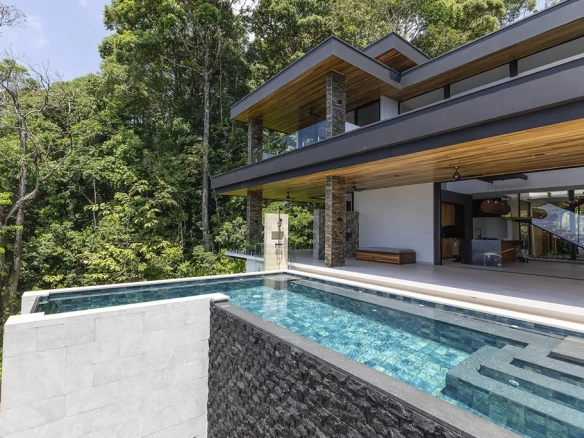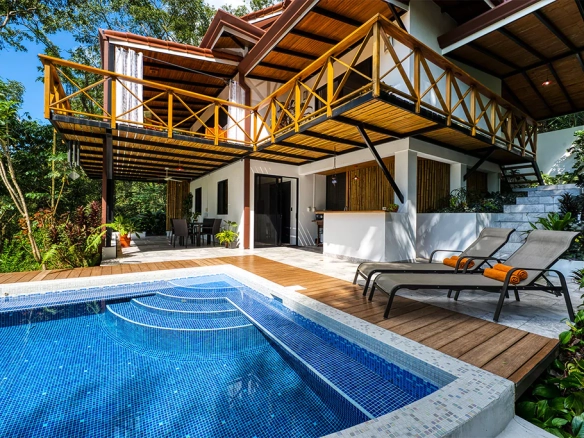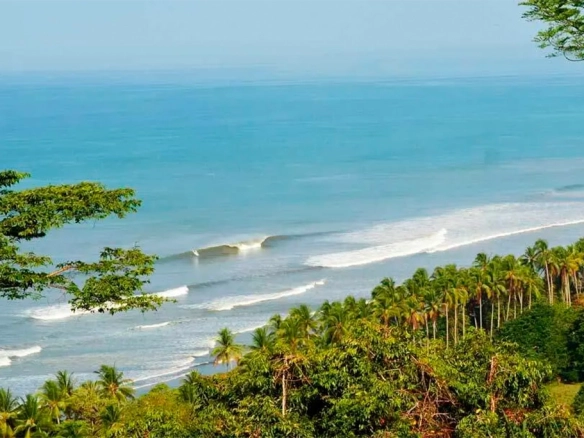Many people live in Costa Rica full time without residency by constantly renewing their 90 day tourism visa. This is because some do not qualify for residency and others just choose not to go through the process. However, renewing the tourist visa requires leaving the country for 72 hours every 90 days and is a technicality and not a legally recommend process.
Perpetual Tourism
I know people that have been here for years by just going to Panama for the weekend once every 3 months or 90 days. They get their new stamp in their passport and have another 90 days in Costa Rica to enjoy before doing it all over again.

Also if they travel back to the U.S., Canada, or Europe often it is easier to keep renewing the tourist permit visa. When re-entering the country the immigration official will want to see you have plans to leave within 90 days; so an airline or bus ticket out of the country will work as proof. Although at first this is great and seems like a mandatory vacation, the 90 days begin to move quicker and it gets old going to Panama or Nicaragua every 3 months. There are also services that someone will take your passport and do the stamps for you, but I personally would rather have my passport in my possession at all times. This perpetual tourism is not exactly a legal way to reside in Costa Rica and immigration official could potential deport you if they chose to, but again many people have gotten away with this for years and it is up to the individual of you want to go this route or apply for legal residency.
Residency
Residency can be obtained a few different ways. One is to get married and have kids, which is what I did and permanent residency was an inadvertent side effect of this. However, this is not in the plans for most people. The other ways are investor status, rentista status, and pensianado status. All three of these options are forms of temporary residency that will have to be renewed after 2 years and one can upgrade to permanent residency after 3 years.

Investor Status – An investment in Costa Rica of over $200,000 in a working business or other approved types of investment. Typically this investment must supply jobs for locals, pay proper taxes, and pay insurance policies for their employees. Commonly buying or constructing a B&B, hotel, or restaurant may fall into this category. This can be renewed after 2 years with proof you are employing locals, pay national insurance to the “Caja”, and have been in the country 6 months minimum of each year.
Rentista Status – This is common for families moving to Costa Rica and one must prove $2,500 of monthly income for themselves, spouse, and any children under the age of 25 years. Therefore you must prove you have at least $60,000 in a bank account that will be transferred to Costa Rica steadily every month $2,500 at a time. The residency must be renewed after 2 years and another $60,000 proven to immigration, along with proof of “Caja” insurance, and you must reside in Costa Rica a minimum of 4 months each year. After 3 years you may upgrade to permanent residency.
Pensionado Status – This means a lifetime pension will be received of no less than $1,000 per month by the applicant whether through social security, retirement benefits, military pension, or a lifetime annuity payment. Although this is the most common form of residency for retirees, there is not minimum age limit and if you can prove a $1,000 monthly pension payment you may qualify. This type is also good for 2 years and can be renewed with proof you still receive the pension, pay monthly insurance into the “Caja”, and have resided in Costa Rica 4 months of each year. May also upgrade to permanent residency after 3 years.
Other less common forms of receiving residency are working for a multi-national company and being positioned in Costa Rica, international government work, or international mission work. Investor, Rentista, and Pensionado are the most common and for more details on the requirements and paper work need visit Costa Rica Law at: http://www.costaricalaw.com/legalnet/residency.html
Getting professional counsel is highly advised for the residency process that will take 1 year or even more and requires Costa Rica Consulate approved paperwork and certificates from your country of origin. Many people have tried to save a few hundred dollars and not received their residency after years of trying with an incompetent attorney. The Association of Residents of Costa Rica (ARCR) have been doing this process for foreigners for many years. I personally used an attorney in San Jose named Federico Guzmán and he did a terrific job. Below is his contact information for anyone considering residency in Costa Rica:
Federico Guzmán
Partner | Attorney at Law
INGEAA
www.ingeaa.com
Alvasa Building, 1st Floor
Tournon, San Jose, Costa Rica
Tel: (506) 2233-2006 | (506) 2233-2024
Fax: (506) 2221-7368 | US: (202) 742-2752
Email: fguzman@ingeaa.com




Join The Discussion